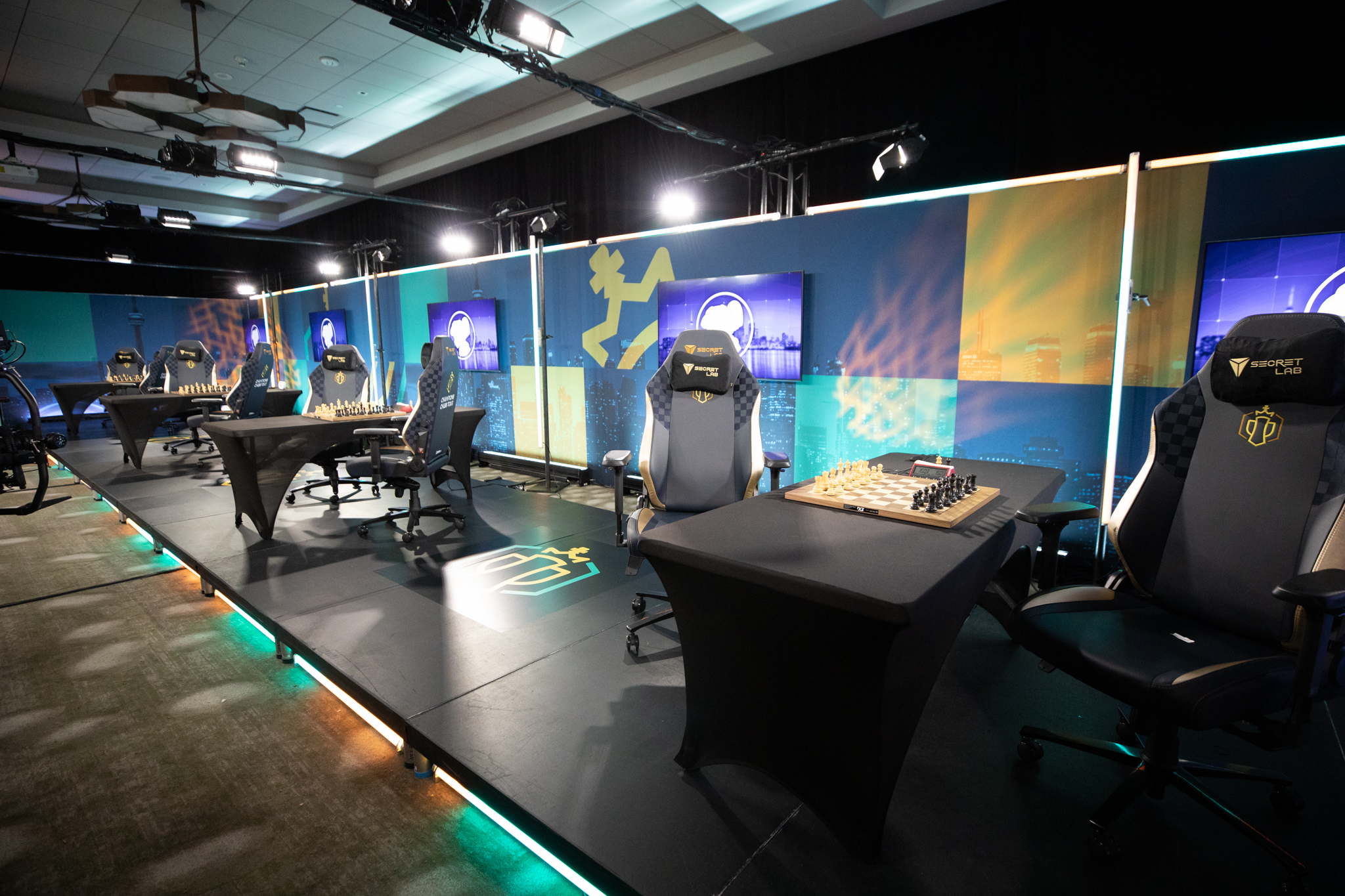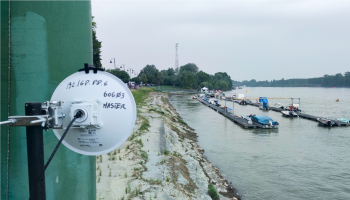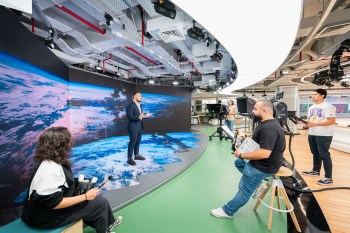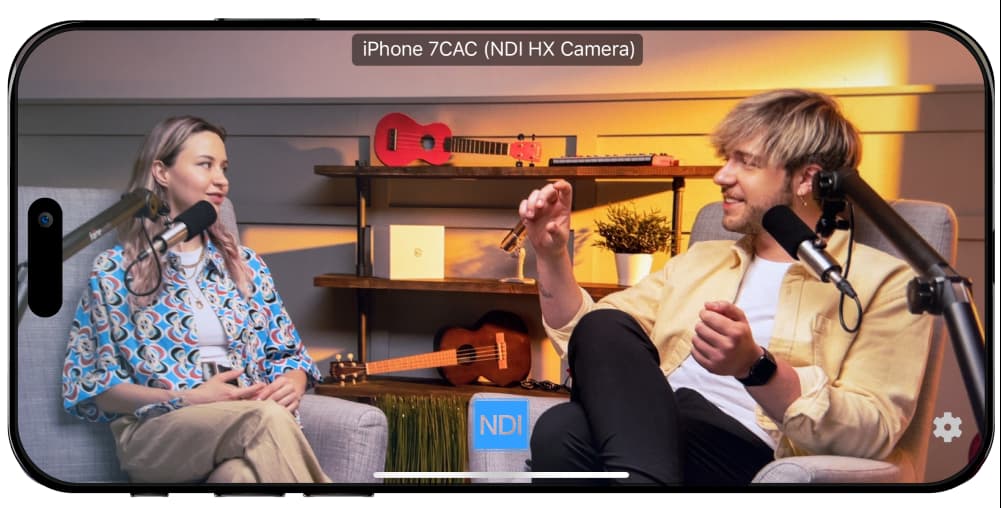Chess.com is the world’s #1 online chess platform, hosting up to 1 billion games each month. Recently, they began using modern broadcasting techniques to air chess matches around the world, along with interviews and expert commentary. Today, their AWS VPC (Virtual Private Cloud) studio handles up to 80-120 NDI signals per match, allowing the fully remote, international team to work from anywhere and adapt to a wide range of conditions.
Challenge
Chess.com began with the idealistic vision of getting people excited about chess through online play and interviews with top players and experts.
For years, the team behind the platform used basic OBS setups to stream chess tournaments and events, but in 2022, they decided to build a full-scale media arm to cover chess tournaments using modern broadcasting techniques. They hired Mike Buetsch to serve as Director of Broadcast Engineering & Production, and he led a holistic review to identify their options and plan a production strategy.

Mike Buetsch, Director of Broadcast Engineering & ProductionWe started off with the idea of building a physical studio, but we quickly moved away from that idea,” says Mike. “In the spirit of Chess.com as a fully remote company, we decided to create a completely remote broadcasting solution that lives entirely in the cloud.
Mike and his team envisioned a virtual production workflow where employees in Europe, South Africa, India, and the United States could seamlessly collaborate. That meant every employee could work from their home office and access all the tools they’d find in a traditional broadcasting truck.
“That plan led us away from the all-in-one packaging that most cloud-native companies are currently trying to serve,” says Mike. “We found packages that offered switching audio comms, multi-viewing, and everything else, all in one device. They load it up and manage it for you, but we knew it wouldn’t be strong enough.”
These options fell short because Chess.com wouldn’t have one signal entering a single location to be distributed through a single application. They needed to distribute every signal across as many as 13 EC2s, relying entirely on AWS for cloud production.
“NDI made a lot of sense because it didn’t require us to manage so many transport destinations,” says Mike.
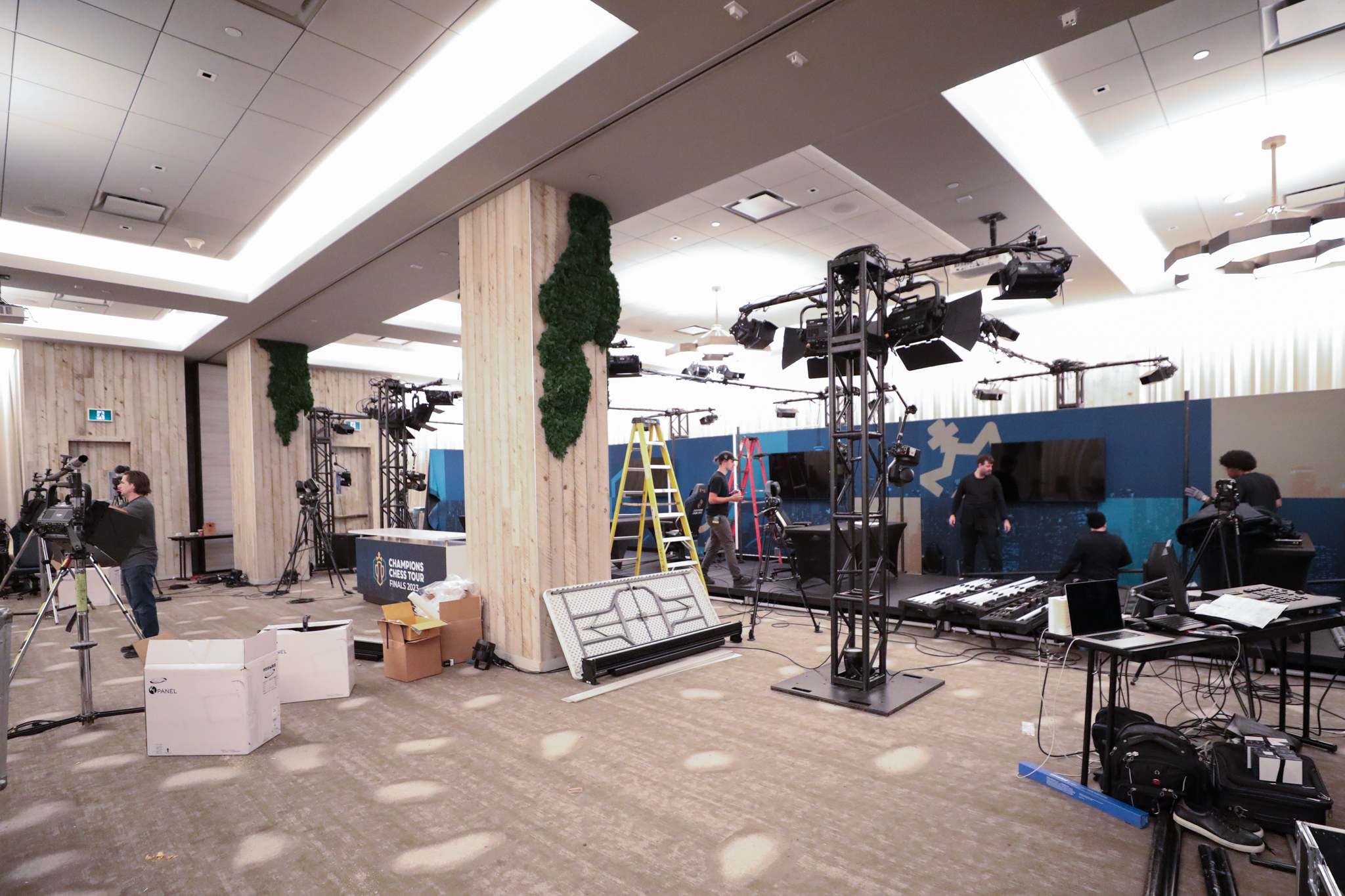
Mike and his team hired Advanced Systems Group (ASG) as their integration partner. Together, they began building what Mike calls a “virtual product truck” that could handle 80-120 NDI signals during a given match and numerous camera inputs (50+ cameras in some cases) from different camera types.
Mike Buetsch, Director of Broadcast Engineering & ProductionWe asked ourselves how we could cover chess in a traditional sports manner while putting our own spin on it. We decided to build out workflows that let us show the game of chess how we wanted to show it, without having to tailor it to a truck or a flypack.
Solution
The Chess.com team began with a proof of concept, starting with the switcher. Creating a test case by broadcasting a few shows with vMix in the cloud, they set up several vMix instances using NDI to transport the signals.
“We started with the switcher because we had a huge, 40+ camera count. That’s a lot of cameras for any production, so we had to figure out how to put that amount of cameras in the cloud. We explored so many solutions, from Ross to Grass Valley,” says Mike.
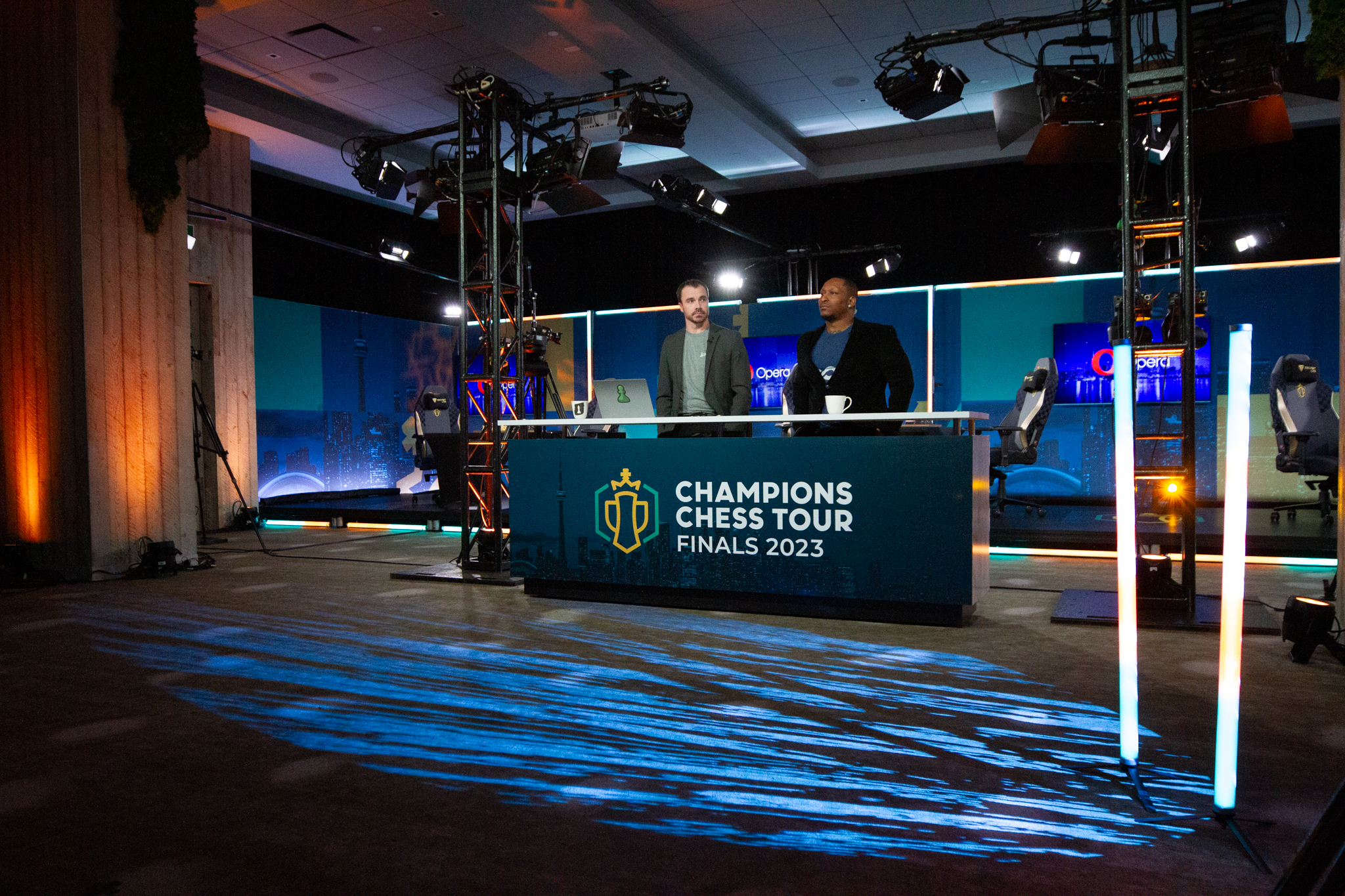
As their transmission needs grew, they quickly moved into the Zixi infrastructure. Once they validated their proof of concept, they started hiring a large staff of engineers and technical directors.
“We did all kinds of very small standups using vMix for cloud production, just to see if the solution worked, and we felt comfortable with it,” says Mike. “We needed to know if we could operate it how we wanted, so we tested it for a few months.”
The next iteration of the broadcast infrastructure involved delving deeply into the website’s API and working with the development team to create the appropriate toolsets. Once they had the infrastructure figured out, they managed to set up a fully personalized virtual production truck in just six weeks.
Trying to achieve as much cloud-nativity as possible, the infrastructure consisted of:
- Vizrt TriCaster Vectar as the primary production switcher
- Vizrt Viz 3Play 3PV as the primary replay solution
- Telos Infinity VIP for intercom with 41 seats
- Grass Valley AMPP for back-end infrastructure (e.g., AV mixing, multi-viewing, web RTC distribution)
- Zixi as the primary transport solution
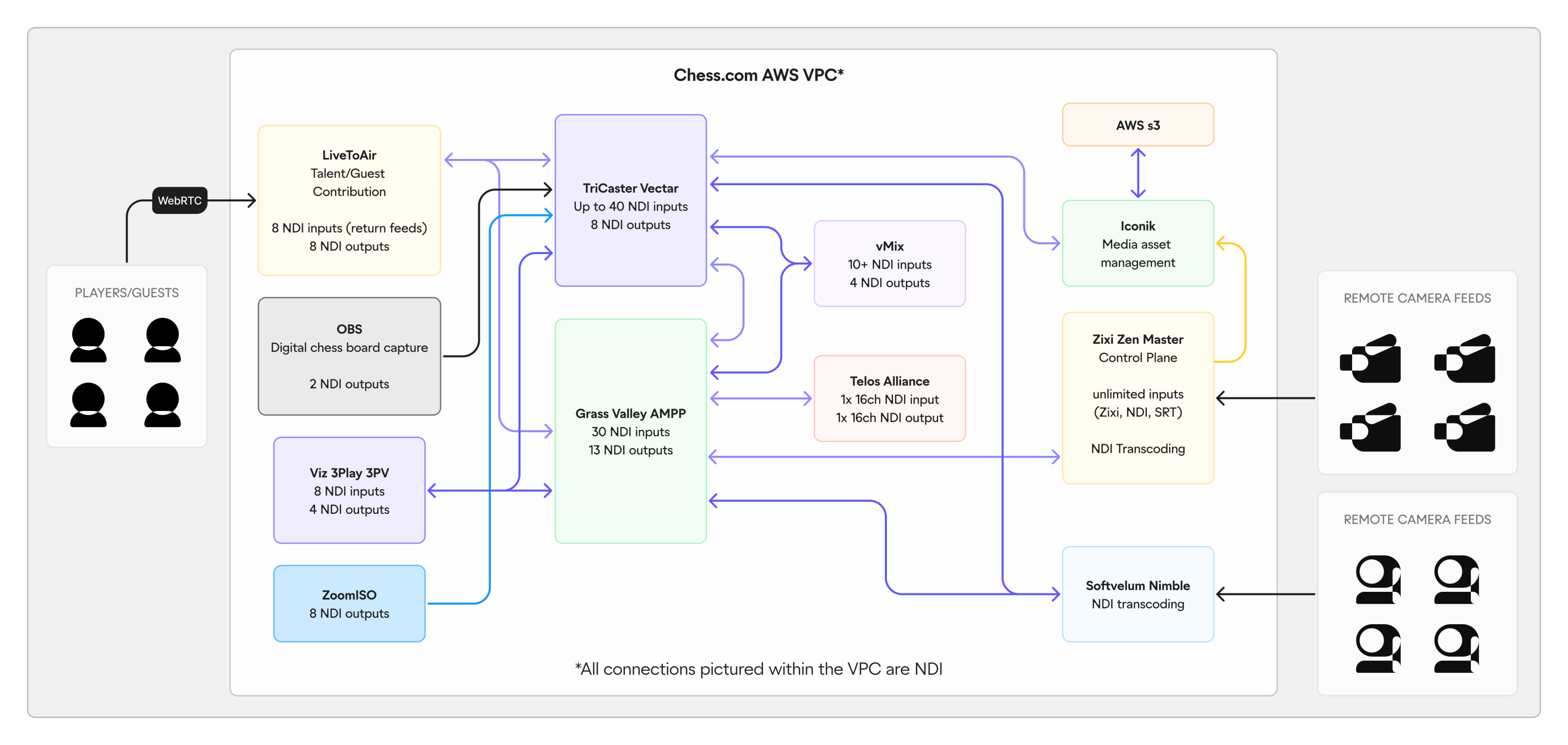
The team connected 18 intercom panels to each employee’s home and used Parsec for remote desktop management, allowing the crew to manage EC2s and software in the cloud. This allowed them to handle 100+ sources within their VCP on a regular basis, often taking in feeds from 30-50+ cameras for a given show.
Mike Buetsch, Director of Broadcast Engineering & ProductionTransporting all this data over NDI has proven incredibly valuable, especially since multiple systems need access to those signals.
Outcome: new wireless possibilities
Thanks to the hard work and ingenuity of Mike’s team and the experts at ASG, Chess.com went from a simple OBS streaming setup to a media company that broadcasts more than 80% of the year, covering their own events as well as third-party events such as major chess tournaments.
A single event might use a variety of camera build-ups using Grass Valley or Sony cameras, PTZ cameras, and sometimes even POV cameras popular with eSports broadcasts. Mike recalls one event, the 2023 Champions Chess Tour Finals in Toronto, where they captured feeds from 26 cameras (at 30 MB each) that covered an on-site analyst desk and four separate matches simultaneously at any given time.
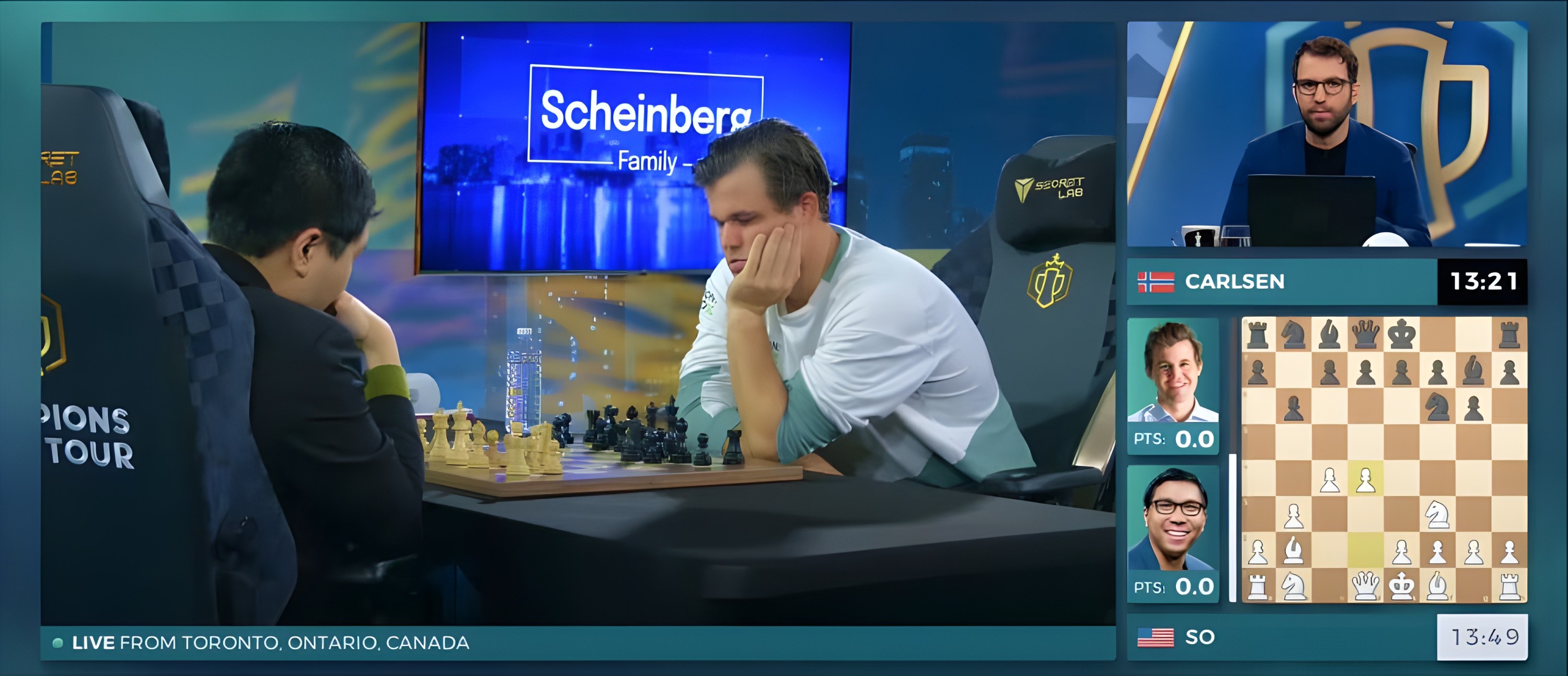
“We took all those isolated feeds and pushed them into a studio in Oslo, where they cut the show and weaved in live desk commentary during gameplay. There was a double set of transmission lines going out, on top of all the intercom connectivity and archiving we do,” says Mike.
What’s truly impressive is that Chess.com accomplished all this with a fully remote workforce. Today, they produce professional-quality broadcasts, with team members collaborating from their homes across continents. NDI allowed them to support their remote-first philosophy, which has been part of their culture since day one.
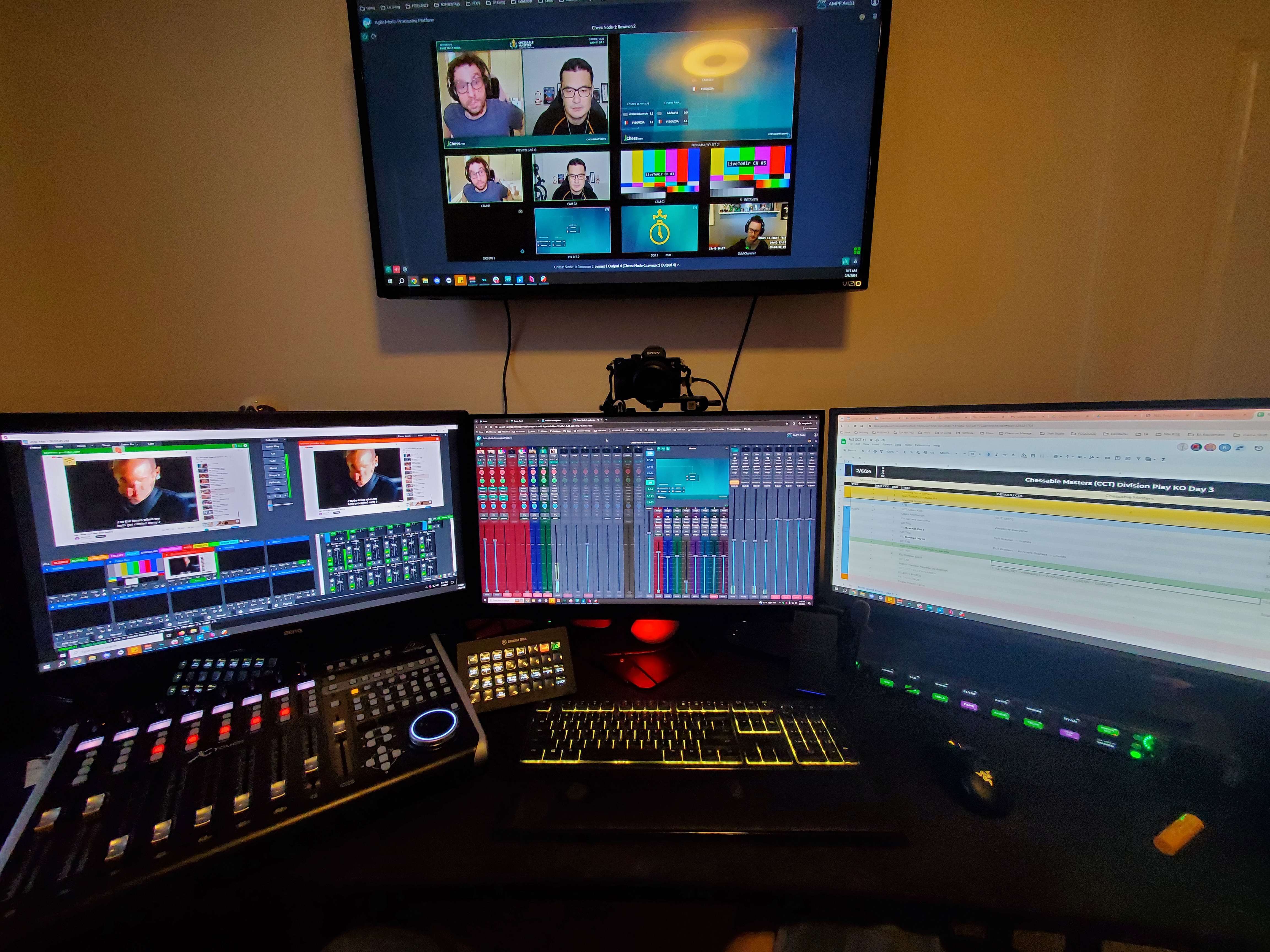

Chess.com’s future plans include more live-streaming content through faster platforms (as opposed to slower platforms like Twitch), moving to 10-bit signals, and pushing HDR video, which is now supported with NDI 6. They’re also exploring the flexibility of NDI and compatible technology to support the next iteration of their broadcast infrastructure.
We stood up our virtual production truck in about a month and a half. Anywhere else, that sounds insane, but we connected everything through cloud-based software and leveraging the flexibility of NDI.
Mike Buetsch, Director of Broadcast Engineering & Production


